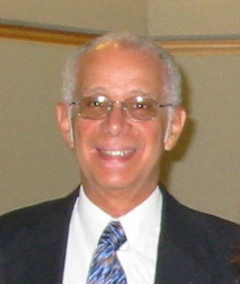Norman Girvan facts for kids
Quick facts for kids
Norman Girvan
|
|
|---|---|

Dr Norman Girvan
|
|
| Born | 28 June 1941 |
| Died | 9 April 2014 (aged 72) |
| Nationality | Jamaican |
Norman P. Girvan (born June 28, 1941 – died April 9, 2014) was an important professor from Jamaica. He was the Secretary General of the Association of Caribbean States from 2000 to 2004. He was born in Saint Andrew Parish, Jamaica. He passed away in Cuba when he was 72 years old, after an accident while hiking in Dominica.
Professor Girvan also worked with the United Nations. From 2009, he was part of the UN Committee on Development Policy. In 2010, Ban Ki-moon, who was the UN Secretary-General at the time, chose him to help with a border disagreement between Guyana and Venezuela. He was also a Professor Emeritus at the University of the West Indies (UWI), which means he was a retired professor who kept his title because of his great work.
Norman Girvan's Early Life and Education
Norman Girvan grew up in Saint Andrew Parish, Jamaica. He went to Calabar High School in Kingston, Jamaica. In 1959, he started studying at the University College of the West Indies. There, he earned his first degree in Economics.
He then traveled to the United Kingdom to continue his studies. He earned his PhD in Economics from the famous London School of Economics. In the 1960s, he was part of a study group in London with other important thinkers like C. L. R. James and Walter Rodney. Norman Girvan was very good at languages and could speak both English and Spanish.
Professor Girvan's Work and Research
Professor Girvan was a very busy and important person in the Caribbean. He was a Professorial Research Fellow at the UWI Graduate Institute of International Relations in St. Augustine, Trinidad and Tobago. Before that, he was the Secretary General of the Association of Caribbean States. This organization helps Caribbean countries work together.
He also worked as a Professor of Development Studies. He was the Director of the Sir Arthur Lewis Institute of Social and Economic Studies at the University of the West Indies. For a time, he even led the National Planning Agency for the Government of Jamaica. This agency helps plan the country's future.
Professor Girvan spent a lot of time researching and writing. He studied many topics that were important for developing countries. These included:
- How foreign companies invest in countries.
- The mining industry, which digs up minerals like bauxite and copper.
- New technologies and how countries can use them.
- The International Monetary Fund (IMF) and how countries deal with their debts.
- How societies grow and improve.
- Ways for Caribbean countries to work closer together.
- Different ideas about how economies should work.
He also helped with the Critical Development Studies Network, which is a group that studies how countries can develop better.
Books and Important Writings
Norman Girvan wrote many books and papers. These writings shared his ideas and research with others. Some of his important works included:
- The Caribbean Bauxite Industry (1967), which looked at how bauxite mining affected the Caribbean.
- Foreign Capital and Economic Underdevelopment in Jamaica (1971), about how money from other countries affected Jamaica's growth.
- Copper in Chile: A Study in Conflict between Corporate and National Economy (1972), which explored the copper industry in Chile.
- Corporate Imperialism, Conflict and Expropriation (1976), a book about big international companies and how countries gain control of their own resources.
- Technology Policies for Small Developing Economies: A Study of the Caribbean (1983), which discussed how small countries in the Caribbean could use technology.
- Cooperation in the Greater Caribbean: The Role of the Association of Caribbean States (2006), a book about how countries in the wider Caribbean region can work together.
His work helped many people understand how global economics and politics affect smaller nations.
 | Calvin Brent |
 | Walter T. Bailey |
 | Martha Cassell Thompson |
 | Alberta Jeannette Cassell |

